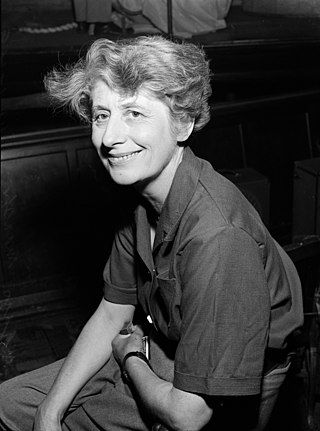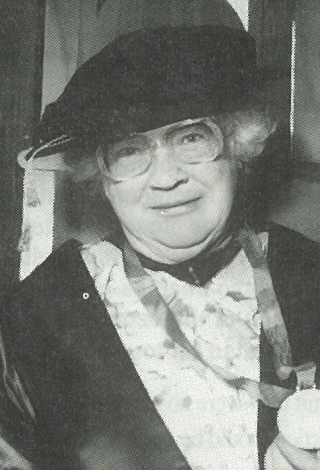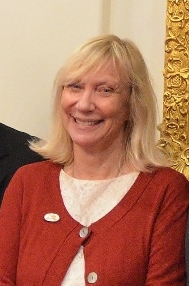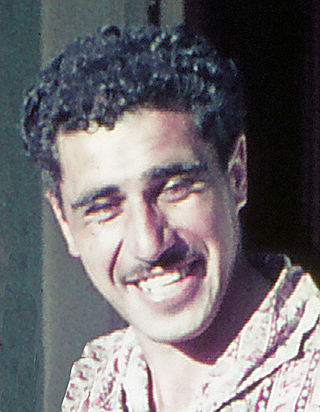Related Research Articles

Dame Edith Ngaio Marsh was a New Zealand mystery writer and theatre director. She was appointed a Dame Commander of the Order of the British Empire in 1966.

New Zealand literature is literature, both oral and written, produced by the people of New Zealand. It often deals with New Zealand themes, people or places, is written predominantly in New Zealand English, and features Māori culture and the use of the Māori language. Before the arrival and settlement of Europeans in New Zealand in the 19th century, Māori culture had a strong oral tradition. Early European settlers wrote about their experiences travelling and exploring New Zealand. The concept of a "New Zealand literature", as distinct from English literature, did not originate until the 20th century, when authors began exploring themes of landscape, isolation, and the emerging New Zealand national identity. Māori writers became more prominent in the latter half of the 20th century, and Māori language and culture have become an increasingly important part of New Zealand literature.

Janet Paterson Frame was a New Zealand author. She is internationally renowned for her work, which includes novels, short stories, poetry, juvenile fiction, and an autobiography, and received numerous awards including being appointed to the Order of New Zealand, New Zealand's highest civil honour.

Maurice Gough Gee is a New Zealand novelist. He is one of New Zealand's most distinguished and prolific authors, having written over thirty novels for adults and children, and has won numerous awards both in New Zealand and overseas, including multiple top prizes at the New Zealand Book Awards, the James Tait Black Memorial Prize in the UK, the Katherine Mansfield Menton Fellowship, the Robert Burns Fellowship and a Prime Minister's Award for Literary Achievement. In 2003 he was recognised as one of New Zealand's greatest living artists across all disciplines by the Arts Foundation of New Zealand, which presented him with an Icon Award.

Amanda Hager is a writer of fiction and non-fiction for children, young adults and adults. Many of her books have been shortlisted for or won awards, including Singing Home the Whale which won both the Young Adult fiction category and the Margaret Mahy Book of the Year in the New Zealand Book Awards for Children and Young Adults in 2015. She has been the recipient of several fellowships, residencies and prizes, including the Beatson Fellowship in 2012, the Katherine Mansfield Menton Fellowship in 2014, the Waikato University Writer in Residence in 2015 and the Margaret Mahy Medal and Lecture Award in 2019.

Lloyd David Jones is a New Zealand author. His novel Mister Pip (2006) won the Commonwealth Writers' Prize and was shortlisted for the Booker Prize.
The Court Jesters is a professional improv company founded in 1989 and based in Christchurch, New Zealand. It is a subsidiary of the Court Theatre professional theatre company, acting as a second company within the theatre.
David Geary is a Māori writer from New Zealand who is known for his plays The Learners Stand, Lovelocks Dream Run and Pack of Girls. For television he has written for New Zealand series Shortland Street and Jackson's Wharf.

Badjelly the Witch is a brief handwritten, illustrated story by Spike Milligan, created for his children, then printed in 1973. It was made into an audio and a video version.
Charlotte Grimshaw is a New Zealand novelist, short-story writer, columnist and former lawyer. She has written both fiction and non-fiction, often drawing on her legal experience. Her short stories and longer works often have interlinked themes and characters, and feature psychological and family dramas.
The Katherine Mansfield Menton Fellowship, formerly known as the New Zealand Post Katherine Mansfield Prize and the Meridian Energy Katherine Mansfield Memorial Fellowship, is one of New Zealand's foremost literary awards. Named after Katherine Mansfield, one of New Zealand's leading historical writers, the award gives winners funding towards transport to and accommodation in Menton, France, where Mansfield did some of her best-known and most significant writing.
Fiona Farrell is a New Zealand poet, fiction and non-fiction writer and playwright.
Craig Cliff is a New Zealand short story writer and novelist.
Rachel Phyllis McAlpine is a New Zealand poet, novelist and playwright. She is the author of 30 books including poetry, plays, novels, and books about writing and writing for the internet.

Bill Direen is a musician and poet. He manages the music group Bilders and lives in Otago, New Zealand.
Sue McCauley QSM is a New Zealand novelist, short story writer, playwright, journalist and screenwriter.

Rowley Habib, also known as Rore Hapipi, was a New Zealand poet, playwright, and writer of short stories and television scripts.
Stuart Hoar is a New Zealand playwright, teacher, novelist, radio dramatist and librettist.

Stephanie Patricia Johnson is a poet, playwright, and short story writer from New Zealand. She lives in Auckland with her husband, film editor Tim Woodhouse, although she lived in Australia for much of her twenties. Many of her books have been published there, and her non-fiction book West Island, about New Zealanders in Australia, is partly autobiographical.
Albert Alexander Amahou Belz is a New Zealand actor, writer and lecturer.
References
- ↑ "Class Notes". Regulas. No. 2. St Andrew's College. August 2016. p. 60. Retrieved 7 November 2020.
- ↑ Nixon, Carl (September 2008). "Late reader still a great writer". Christchurch City Council Libraries. Retrieved 7 November 2020.
- ↑ Nixon, Carl (1992). For they shall be comforted : an examination of the liturgy, usage and adequacy of the funeral service in A New Zealand prayer book (1989) with reference to the grief of the bereaved (Master's thesis). UC Research Repository, University of Canterbury. doi:10.26021/3879. hdl:10092/8122.
- 1 2 3 "Nixon, Carl". Read NZ - Te Pou Muramura. Retrieved 4 October 2020.
- ↑ "The Court Jesters Celebrate 20 Years Of Laughs With Improv Marathon 6/25". BroadwayWorld. 19 May 2010. Retrieved 8 October 2020.
- 1 2 3 "National portrait: Carl Nixon, writer". Stuff.co.nz. 17 November 2017. Retrieved 4 October 2020.
- ↑ Guardians of Mother Earth Paperback – 19 Dec. 1996. ASIN 1869502167.
- ↑ "Carl Nixon". Academy of New Zealand Literature. Retrieved 4 October 2020.
- 1 2 3 4 "Carl Nixon". Penguin.co.nz. Retrieved 4 October 2020.
- ↑ "Rocking Horse Road Critique". Carl Nixon. Retrieved 4 October 2020.
- ↑ "2010/2011 Beatson Fellow Announced". Creative New Zealand. 21 October 2010. Retrieved 7 March 2021.
- ↑ "Carl Nixon - Autor/Künstler". Weidle Verlag. Retrieved 6 October 2020.
- 1 2 3 4 5 6 7 8 9 10 11 "Plays". Carl Nixon. Retrieved 7 November 2020.
- ↑ "Carl Nixon". Playmarket. Retrieved 7 November 2020.
- ↑ "2020 Adam NZ Play Award". Playmarket. Retrieved 29 September 2021.
- 1 2 "Carl Nixon". The Arts Foundation. Retrieved 4 October 2020.
- ↑ "Carl Nixon: Writing in Menton". The Arts Foundation Te Tumu Toi. 27 August 2018. Retrieved 7 November 2020.
- ↑ Nixon, Carl (4 August 2020). The Tally Stick. Random House NZ. ISBN 978-0-1437-7476-1 . Retrieved 7 November 2020.
- ↑ Matthews, Philip. "The Tally Stick by Carl Nixon". The Friday Review. Academy of New Zealand Literature. Retrieved 7 November 2020.
- ↑ Harrington, Erin (1 September 2020). "Into the wild: A review of Carl Nixon's astonishing novel, The Tally Stick" . Retrieved 7 November 2020.
- ↑ "Ngaio Marsh Awards 2021 shortlists announced". Books+Publishing. 16 September 2021. Archived from the original on 16 September 2021. Retrieved 17 September 2021.
- ↑ Nixon, Carl (2023). The Waters. RHNZ Vintage. ISBN 9781761047121.
- ↑ Blundell, Sally (27 July 2023). "Book of the Week: It happened in Christchurch". Newsroom. Retrieved 4 August 2023.